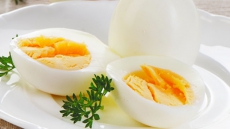A good appetizer has the potential to significantly change how the main course is enjoyed, says a study by a food science professor.
"If you have a fantastic appetizer and then the main seems lack luster, that could be because of this type of contrast effect. That does not mean you should not have fantastic appetizers!" said Jacob Lahne, assistant professor in the Center for Hospitality and Sport Management at Philadelphia's Drexel University.
Lahne tested and analysed subjects' hedonic (liking) responses to a main dish of "pasta aglio e olio" (pasta with garlic and oil) after they had either a good or mediocre bruschetta appetizer.
The good bruschetta was made with extra ingredients like balsamic vinegar and lemon zest as well as fresher and better quality ingredients compared to the blended olive oil and dried basil in the mediocre bruschetta.
The good bruschetta was judged better than the mediocre bruschetta but the pasta dish was liked more when preceded by the mediocre appetizer.
One possible reason for this result is that the very nature of the appetite-whetting first dish sways the consumer to compare it with the subsequent courses to the latter's potential detriment.
There had been no research on how liking one dish might be influenced by other sequential foods in the meal until this study.
With his co-author, Debra Zellner, PhD, a professor at Montclair State University, he published the results of the study "The Great is the Enemy of the Good: Hedonic Contrast in a Coursed Meal" in Food Quality and Preference.
"I've always been interested in trying to understand the food choices people make, so doing research in Drexel's Academic Bistro as a unique study space seemed like a natural approach," Lahne said.
The study appeared in Food Quality and Preference.





